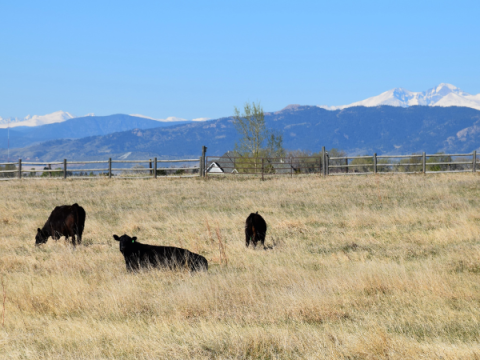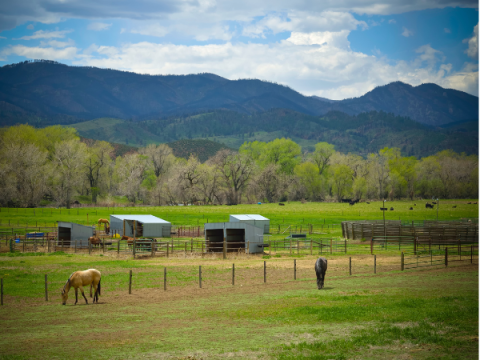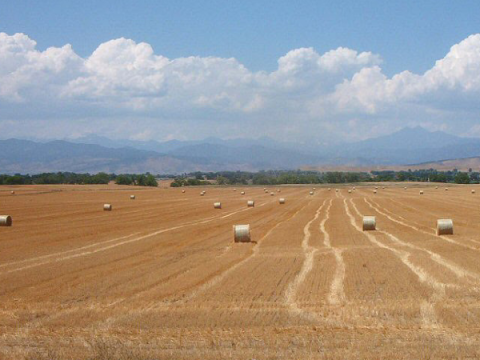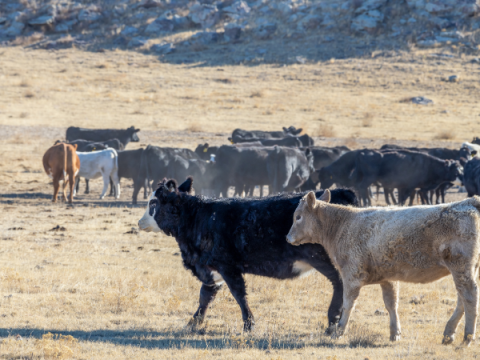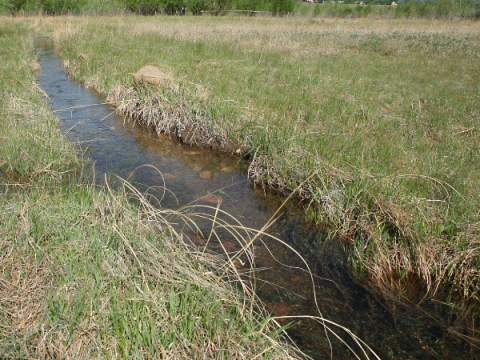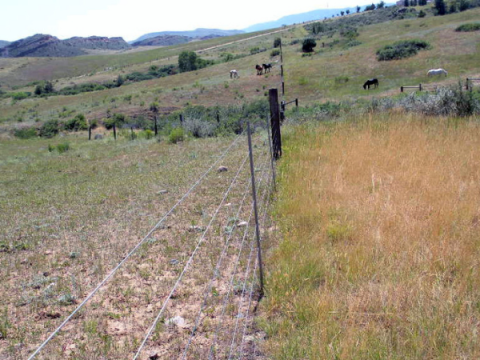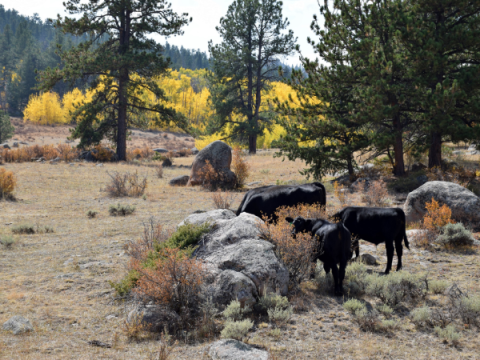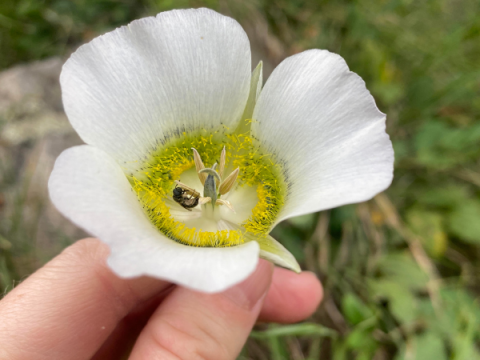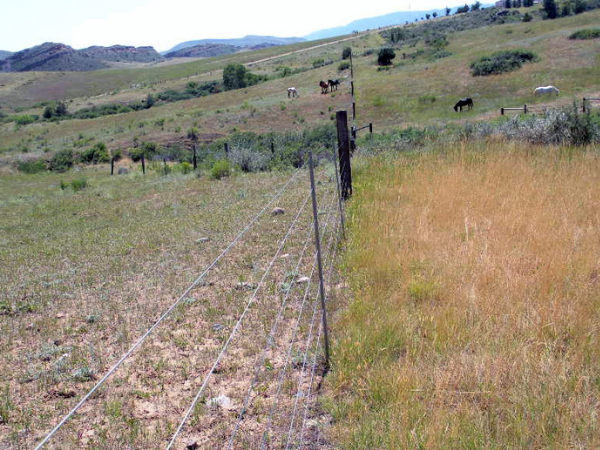 There are special elements and considerations involved with managing small acreage properties such as weed identification and management, grass identification, pasture management, and reseeding.
There are special elements and considerations involved with managing small acreage properties such as weed identification and management, grass identification, pasture management, and reseeding.
Colorado Small Acreage Management
The Colorado Small Acreage Management is a partnership through the Colorado State University Extension and the USDA Natural Resources Conservation Service. You can find more information including the Colorado Forage Guide on their website.
If you are interested in grazing management its first important to know what grass you are growing, this will determine when you should graze and how long depending also on the grazing animal. These guides and factsheets below will help you learn how to identify your grass and how to graze accordingly.
If you are interested in reseeding it's important to know the cost, equipment, if you even need to reseed and the best of the year to reseed if you have a dryland pasture. The guides and documents below will help you learn how to reseed correctly.
The Small Acerage Management Newsletters are offered through Colorado Small Acreage Management.
Learn more
2021
Fall
- Eating Locally, Building a Stronger Colorado
- Colorado Produce Calendar
- Leave it Messy this Fall
- Turkey Time
- Ranch to Plate Act
- Winterbourne Weeds
Summer
- Beef with a Story to It
- Wetland Ecosystem Restoration
- 10 Tips on Managing Drought Stressed Horse Pastures
- Prostrate Weeds
- Journal Entry from a Bird Conservationist
- Livestock Checkpoints Planned in Brand States
Spring
- Beetle Outbreak Impacts
- Emergency Preparedness: Make A Plan
- Protecting Plants from Wild Weather this Spring
- Introduction to N-P-K on a Compost Test
- Annual Weeds
- Learning Opportunities and Grants
Winter
- New SAM Specialist
- Keeping Dogs Safe around Livestock and Horses
- Windbreaks and Small Acreages
- USDA Expands Resources for Poultry Growers
- Winter Chicken Care 6 Gardening Predictions for 2021
- Learning and Grant Opportunities
2020
Fall
- Small Acreage Management Survey
- Grazing Behavior Depends on Species, Location
- Wildfire Wednesday Webinars
- Plant Hardiness is More than a Zone Number
- Dryland Pasture Series
- Potential Restoration of Wolves in Colorado
- SARE Fresh Growth Podcast
Summer
- Victory Garden Program with Grow and Give
- 4-H Carries On
- A Website We Love
- Best plants to create habitat
- NRCS Resources 7 Composting 101
- Holistic Land Planning Opportunity
Spring
- Picking the Right Chicks for You
- Fire Resistant Landscaping
- Custom Rates of 2019
- Can Specialty Crops and Solar Thrive Together?
- Transplanting Warm Season Vegetables
- Upcoming Webinars and Educational Opportunities
Special Edition
- Life in the Times of COVID-19
- Thoughts to Consider
- Septic Systems
- Educational Videos, Audio, and Other Recordings
- Equine Corona Virus is Not COVID-19
- Maintaining a Healthy Barn
Winter
- Where do Bees go in Winter?
- Soil Health
- USDA Rural Development Value Added Grant
- Which Trees to Transplant in Spring and Fall
- Bird Migration Timing
- Payson Lupine and Silvery Lupine
2019
Fall
- Nature’s Little Serial Killer, the Loggerhead Shrike
- Thinking of Reseeding a Pasture?
- Vesicular Stomatitis Confirmed in 35 Counties
- Resources for Hay Buyers and Producers
- Plant Look-a-Likes: Hemlock and Osha
- Salmonella Outbreaks Linked to Backyard Poultry
- Fall Weed Management
Summer
- Rabbit Ownership
- Canada Thistle Rust
- Rangeland Grass Recovery After Drought
- Colorado Woody Plants App
- Gardening Hacks for Extreme Colorado
- Biodiversity
- YouTube University
- Colorado Forest Legacy Program
Spring
- Microgreens Production
- A Little Bit of Snake Knowledge Goes a Long Way
- Horse Pasture and Manure Q & A
- Pasture Seeding Q & A
- Weeds With Taproots: Organic Control on Small Plots
- Feeding Wildlife During Winter Does Harm
- CSU Online Land Stewardship Short Courses
- Bark Beetle Outbreak Expanding in Colorado
Winter
- The Spreading of Weeds
- Pasture Track System
- Air Quality and Agriculture
- Lavender Production and Management
- More to the Business than Harvesting and Selling
- High Altitude Baking
- Low-Cost Seedling Trees Available for Landowners
- Online Land Stewardship Program
- New Program Supports Agricultural Intern Opportunities
- Western Colorado Food and Farm Forum
Do you have questions?
Larimer County CSU Extension can help you reach the goals for your property.
Site visit cost: $75 (cost includes visit and management plan/additional resources)
During your site visit, we can consult on:
- Grazing management
- Weed ID
- Poisonous plants
- Re-seeding
- Irrigation
- Tree care.
Contact us at 970-498-6000 or CSUExtension@larimer.org to schedule.
Email Jenna Brager to be updated about small acreage events.
Larimer County Colorado State University Extension
HOURS
7:30 a.m. - 4:30 p.m.
Monday - Friday
Our office follows the Larimer County Holiday Calendar for office closures.
 There are special elements and considerations involved with managing small acreage properties such as weed identification and management, grass identification, pasture management, and reseeding.
There are special elements and considerations involved with managing small acreage properties such as weed identification and management, grass identification, pasture management, and reseeding.